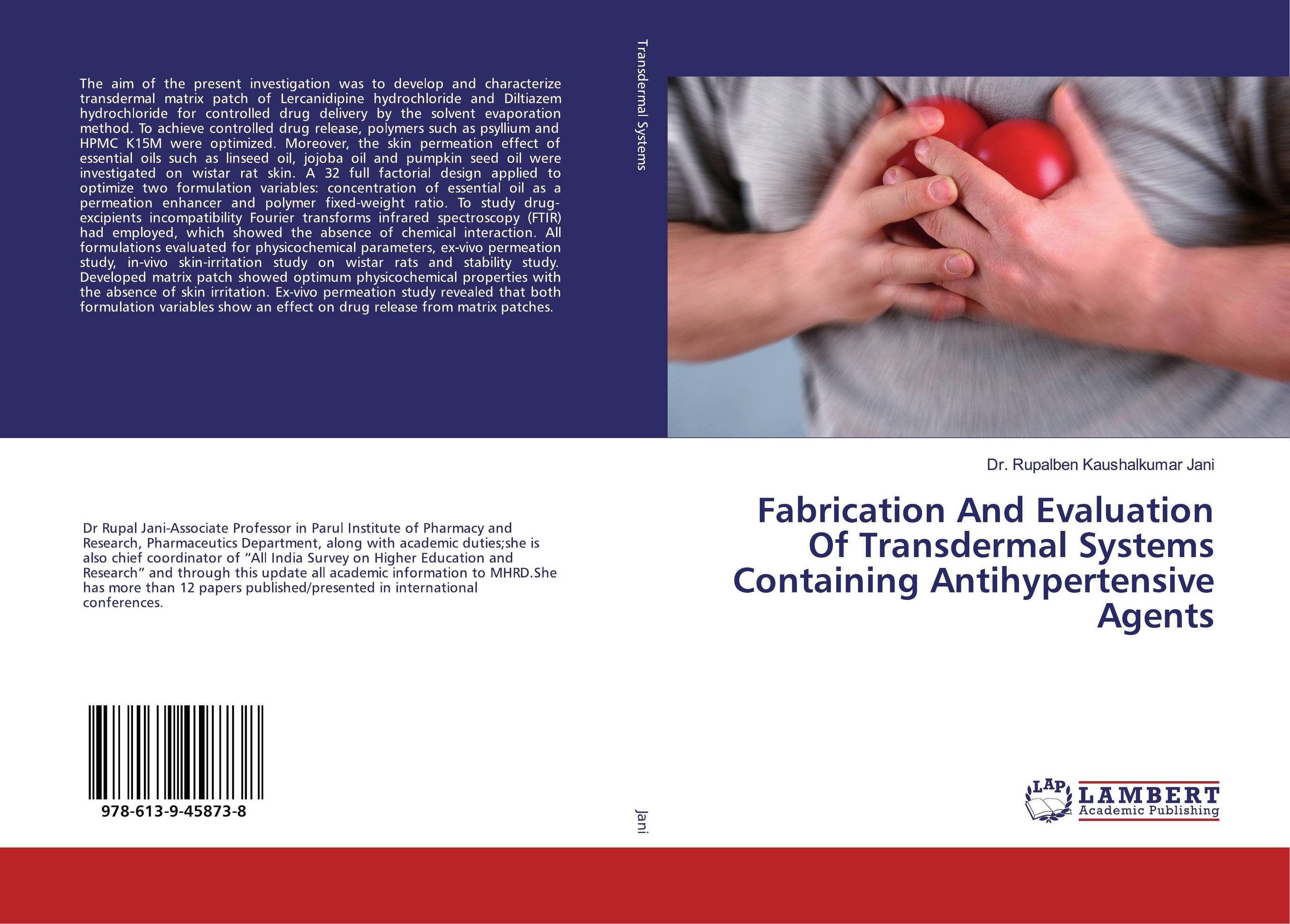| Поиск по каталогу |
|
(строгое соответствие)
|
- Профессиональная
- Научно-популярная
- Художественная
- Публицистика
- Детская
- Искусство
- Хобби, семья, дом
- Спорт
- Путеводители
- Блокноты, тетради, открытки
Fabrication And Evaluation Of Transdermal Systems Containing Antihypertensive Agents.

В наличии
| Местонахождение: Алматы | Состояние экземпляра: новый |

Бумажная
версия
версия
Автор: Dr. Rupalben Kaushalkumar Jani
ISBN: 9786139458738
Год издания: 2019
Формат книги: 60×90/16 (145×215 мм)
Количество страниц: 184
Издательство: LAP LAMBERT Academic Publishing
Цена: 43101 тг
Положить в корзину
| Способы доставки в город Алматы * комплектация (срок до отгрузки) не более 2 рабочих дней |
| Самовывоз из города Алматы (пункты самовывоза партнёра CDEK) |
| Курьерская доставка CDEK из города Москва |
| Доставка Почтой России из города Москва |
Аннотация: The aim of the present investigation was to develop and characterize transdermal matrix patch of Lercanidipine hydrochloride and Diltiazem hydrochloride for controlled drug delivery by the solvent evaporation method. To achieve controlled drug release, polymers such as psyllium and HPMC K15M were optimized. Moreover, the skin permeation effect of essential oils such as linseed oil, jojoba oil and pumpkin seed oil were investigated on wistar rat skin. A 32 full factorial design applied to optimize two formulation variables: concentration of essential oil as a permeation enhancer and polymer fixed-weight ratio. To study drug-excipients incompatibility Fourier transforms infrared spectroscopy (FTIR) had employed, which showed the absence of chemical interaction. All formulations evaluated for physicochemical parameters, ex-vivo permeation study, in-vivo skin-irritation study on wistar rats and stability study. Developed matrix patch showed optimum physicochemical properties with the absence of skin irritation. Ex-vivo permeation study revealed that both formulation variables show an effect on drug release from matrix patches.
Ключевые слова: Pumpkin seed oil, Psyllium, Hypertension, diltiazem hydrochloride, Propylene glycol, ex-vivo study, in-vivo skin irritation study, lercanidipine hydrochloride



